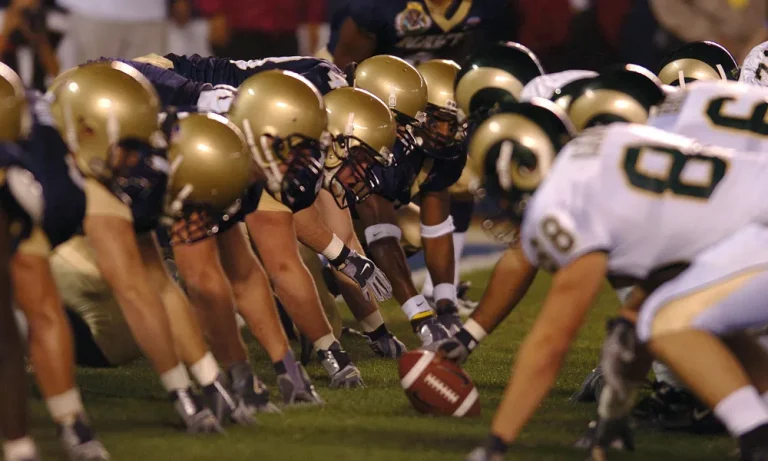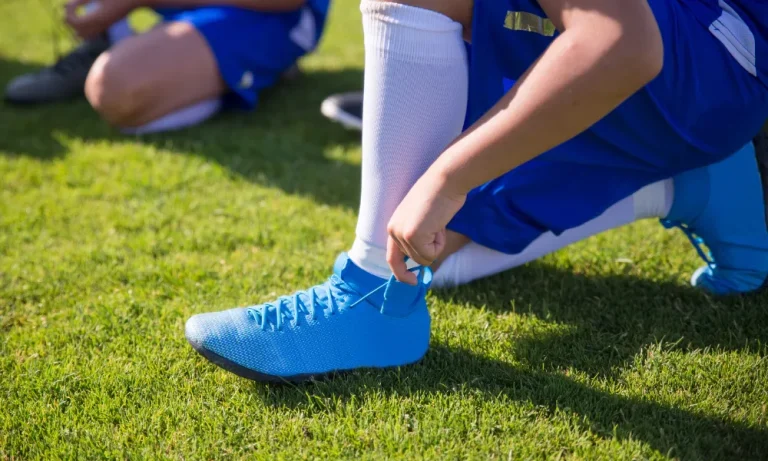Is there an age Limit for playing College Football?
Are you an aspiring college football player wondering if there’s an age limit for playing the sport? Look no further! In this article, we will explore the age eligibility criteria for college football, helping you understand the rules and regulations that govern this exciting sport. With the popularity of college football on the rise, it’s crucial to know if age could be a determining factor in pursuing your dreams on the field. So, let’s dive in and find out if there’s an age limit for playing college football.
NCAA Age Eligibility Rules

The National Collegiate Athletic Association (NCAA) plays a crucial role in governing college sports, including college football. When it comes to age eligibility rules, the NCAA has established specific guidelines to ensure fairness and maintain a competitive balance among student-athletes.
In the realm of college football, the NCAA sets age eligibility requirements that aspiring players must meet to participate in the sport at the collegiate level. These rules are in place to ensure that athletes are given equal opportunities and to prevent any unfair advantages based on age.
The NCAA age eligibility rules for college football players state that a student-athlete must be at least 18 years old to compete at the Division I and Division II levels. This age requirement is in line with legal adulthood in most countries and serves as a benchmark for physical and emotional maturity. By setting this minimum age, the NCAA aims to ensure that athletes possess the necessary maturity and readiness to handle the demands of college football.
Maintaining fairness and competitive balance is of utmost importance in college sports. By establishing age eligibility rules, the NCAA ensures that athletes have a level playing field. These rules prevent older athletes from dominating the competition, while also protecting younger athletes from potential physical and emotional risks associated with college football. Additionally, these guidelines help maintain the integrity of the sport by ensuring that athletes are competing within a standardized framework.
High School Graduation and Age Requirements
When it comes to college football eligibility, high school graduation is a fundamental requirement. To participate in college football, a player must have successfully completed their high school education, typically earning a high school diploma or its equivalent.
In addition to high school graduation, there are general age requirements that high school graduates must meet to participate in college football. As per NCAA rules, a player must be at least 18 years old to compete at the Division I and Division II levels. This age requirement ensures that athletes have reached a certain level of maturity and are ready to handle the demands of college football.
However, there may be exceptions or special circumstances that allow players to join college football at a younger or older age. For instance, if a player graduates from high school early or skips a grade, they may be eligible to participate in college football at a younger age. On the other hand, if a player faces delays in completing high school due to injury or other reasons, they may have the opportunity to join college football at an older age.
Redshirt and Greyshirt Policies
In college football, the concepts of redshirting and greyshirting are important to understand. Redshirting allows players to delay their participation in games while still maintaining their eligibility to compete for an additional year. On the other hand, greyshirting involves delaying enrollment for a semester or year, often due to academic or roster management reasons.
Redshirting provides players with the opportunity to delay their participation in games while still being able to practice and train with the team. By redshirting, players can gain an extra year of eligibility, meaning they have five years to complete their four years of athletic participation. This additional year can be valuable for players to develop their skills, gain experience, and adjust to the demands of college football before competing in official games.
Greyshirting, on the other hand, involves delaying enrollment for a semester or year. This may be done for various reasons, such as a player needing additional time to meet academic requirements or a coach managing the team’s roster. During the greyshirt period, the player typically does not participate in team activities or receive athletic scholarships. However, they can still train and prepare for their eventual enrollment and participation in college football.
Junior College Transfers
For athletes who may have missed their chance to play college football immediately after high school, playing at a junior college and then transferring to a four-year institution can be a viable option. Junior colleges, also known as community colleges, provide athletes with the opportunity to continue their athletic pursuits while also focusing on academic development.
When it comes to age limitations and eligibility requirements for junior college transfers, there are typically no specific age limitations. As long as a player has completed their high school education or its equivalent, they are eligible to enroll in a junior college and participate in athletics. This flexibility allows athletes of various ages, including those who may have taken a gap year or faced challenges in their high school careers, to still pursue their football dreams.
Starting at a junior college offers several benefits for athletes. Firstly, it provides them with the opportunity to further develop their skills and gain valuable game experience. This can help them improve their chances of being recruited by four-year institutions once they transfer. Additionally, junior colleges often have smaller class sizes and more personalized attention, allowing athletes to focus on their academics and potentially improve their grades for transfer eligibility.
Other Factors Influencing Age Eligibility
Age eligibility for college football is not solely determined by a player’s high school graduation date. Several additional factors can impact a player’s eligibility to compete at the collegiate level. These factors include physical development, injury history, and skill level.
Physical development plays a crucial role in age eligibility. Some players may need more time to mature physically and reach the necessary level of strength and athleticism required for college football. In such cases, delaying enrollment or participating in post-graduate programs can provide the opportunity for further physical development before entering college.
Injury history is another factor that can impact age eligibility. If a player has suffered significant injuries during their high school career, they may need additional time to recover and regain their physical abilities. This may result in delayed enrollment or redshirting at the college level to ensure a full recovery and prevent further injury.
Colleges and conferences may impose specific age restrictions on athletes. These restrictions can vary and are often influenced by academic and athletic regulations. It is important for prospective student-athletes to research and understand the age eligibility requirements of individual colleges and conferences to ensure compliance with their guidelines.
FAQs: Is there an age limit for playing college football?
Is there a specific age limit for playing college football?
No, there is no specific age limit for playing college football. Eligibility is based on completing high school or its equivalent.
Can older athletes participate in college football?
Yes, older athletes can participate in college football as long as they meet the academic and athletic requirements of the institution they wish to join.
Are there any age restrictions imposed by colleges or conferences?
Some colleges or conferences may have specific age restrictions, so it’s important to research and understand their eligibility guidelines.
Does physical development impact age eligibility for college football?
Physical development can influence age eligibility, as some players may need more time to mature physically before competing at the collegiate level.
Can injury history affect age eligibility for college football?
Yes, if a player has a significant injury history, they may need additional time to recover and regain their physical abilities before entering college football.
Conclusion
Understanding the age eligibility criteria is essential for anyone aspiring to play college football. The National Collegiate Athletic Association (NCAA) has established rules to ensure fairness and maintain competitive balance. We discussed the requirements for high school graduates, the implications of redshirting and greyshirting, the option of junior college transfers, and other factors that may influence age eligibility.






